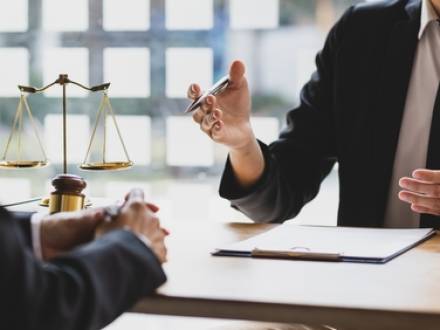Contact Our Firm
The use of the Internet or this form for communication with the firm or any individual member of the firm does not establish an attorney-client relationship. Confidential or time-sensitive information should not be sent through this form.
I have read and understand the Disclaimer and Privacy Policy.

When Can a Florida Business Sue for Trade Libel?
 In our digital world, a single negative post, false review, or damaging statement can tarnish your business’s reputation. While not all criticism rises to the level of trade libel, if your business has suffered financial harm as a result of false statements made online, in print, or through word of mouth, you may have grounds to file a trade libel lawsuit. Your Fort Lauderdale, FL business law attorney will answer your questions regarding when trade libel crosses the legal threshold while helping you hold the responsible party accountable.
In our digital world, a single negative post, false review, or damaging statement can tarnish your business’s reputation. While not all criticism rises to the level of trade libel, if your business has suffered financial harm as a result of false statements made online, in print, or through word of mouth, you may have grounds to file a trade libel lawsuit. Your Fort Lauderdale, FL business law attorney will answer your questions regarding when trade libel crosses the legal threshold while helping you hold the responsible party accountable.
What is Florida Trade Libel?
Trade libel, also known as business disparagement, occurs when false statements are made that damage a person’s business. The statement made regarding the quality of property or goods must be sufficient to lead one to reasonably foresee that a third party would be deterred from purchasing the property or goods.
What Are the Differences Between Defamation and Trade Libel?
When false statements are made to a third party about a business entity or its reputation and those statements harm the business’s financial interests or goodwill, this is known as business defamation. Defamation can take the form of libel (written defamation) or slander (spoken defamation).
Trade libel is similar but focuses on the products or services provided by the business. The act of making false or misleading statements regarding a business’s products, services, or goods constitutes trade libel. Since trade libel is often perpetrated by a competitor, it is considered a form of unfair competition.
Legal Requirements for a Successful Lawsuit
The statement made about the business must be provably untrue and must not fall under protected speech. The statement must specifically target the quality of the plaintiff’s goods, products, or business. The false statement must be communicated to someone other than the plaintiff (a third party). The plaintiff must show there were actual financial losses or damages as a result of the disparaging statement(s).
What About AI Defamation and Trade Libel?
As if worrying about false statements regarding your business from people were not enough, you may also have to worry about false statements made by AI. The dizzyingly fast rise of generative AI has triggered concerns about the potential for AI to spread untrue information that damages reputations. As of May 2025, no final judgments had been reached in AI defamation cases.
The creator of ChatGPT was the recipient of the first AI defamation lawsuit, initiated by an Australian mayor in 2023. The mayor asserted that ChatGPT falsely claimed he had been sent to prison for the crime of bribery, when, in fact, he was a whistleblower in a bribery case. OpenAI was served with a "concerns notice," the initial step in Australian defamation law. The case was dropped in 2024 after ChatGPT corrected the untrue statements.
Across the U.S., early AI defamation cases have also faltered, although a well-known activist filed a defamation lawsuit against Meta in 2025, stating that Meta AI falsely accused him of participating in the January 6, 2021, Capitol riots. Starbuck v. Meta could be the first U.S. case to establish a precedent regarding liability for defamation by AI against an American citizen.
What Are the Legal Remedies for Trade Libel?
Compensatory damages are designed to compensate the injured party for actual losses suffered as a result of trade libel, including compensation for lost profits, decreased sales, and damaged contracts. Non-monetary losses, such as harm to reputation, emotional distress, and loss of business opportunities, can also be compensated financially.
Punitive damages (Florida Statutes Section 768.73) are only awarded when the defendant acted maliciously or with reckless disregard for the truth. The court may issue an injunction that requires the defendant to stop publishing the false statements. A retraction or apology may also be required from the defendant.
Contact a Broward County, FL Business Law Attorney
An Oakland Park, FL business lawyer from The Elliot Legal Group, P.A. can evaluate your case, advise you on the strength of your claim, and help you pursue justice through the appropriate legal channels, which protects your business and your brand. Attorney Elliot also practices international business law and is a licensed solicitor in England and Wales. Call 754-332-2101 to schedule your initial attorney consultation.















